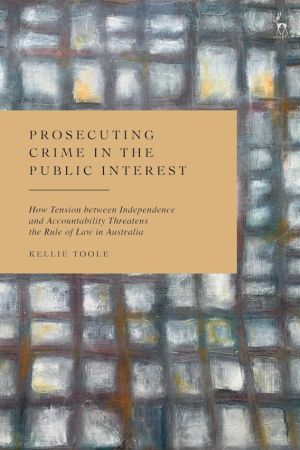
This book provides the first detailed analysis of the decision to prosecute made by the statutory Australian Offices of Director of Prosecution.
It examines the system of prosecution as part of the executive branch of government, and the role and challenges of the individual prosecutors who make decisions within the system. It explores the tension between prosecutorial independence and prosecutorial accountability, and the paradox that political involvement in prosecutions is necessary for accountability and to uphold the public interest, but can compromise independence.
The book makes a unique contribution to both Australian criminal law scholarship and to the international literature on criminal prosecution, by drawing on the sub-disciplines of criminal law and administrative law. It includes case studies on prosecuting child sexual abuse, rape, and government espionage, and comparisons with common law and civil law countries including the USA, the UK, Italy and South Africa.